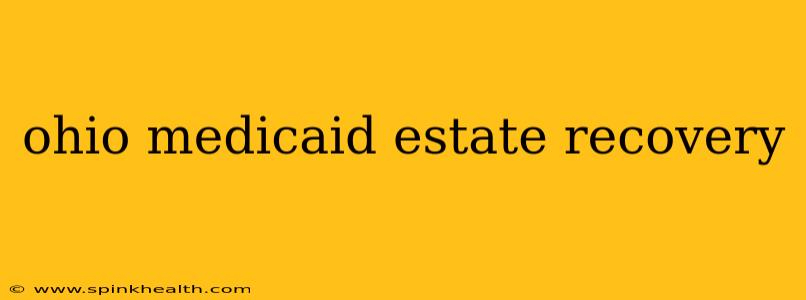The quiet rustle of leaves underfoot, the comforting scent of autumn – these are the images that often spring to mind when we think of Ohio. But for many Ohioans facing the end of life, a different kind of autumn leaves arrives: the complex issue of Medicaid estate recovery. This isn't about raking leaves; it's about understanding the rules surrounding how the state recoups Medicaid expenses after someone passes away. Let's navigate this often-overlooked aspect of end-of-life planning together.
What is Ohio Medicaid Estate Recovery?
Imagine this: your loved one received vital Medicaid assistance during their final years, easing the financial burden of healthcare costs. Ohio Medicaid, like many state programs, has a system in place to recoup some of these expenses after the recipient passes away. This is Medicaid estate recovery. Essentially, the state seeks to recover some or all of the money spent on their care from the deceased's estate. This could include assets like bank accounts, real estate, and other valuable possessions.
This isn't about punishing families; it's about ensuring the sustainability of the Medicaid program so it can continue to provide vital healthcare services to those who need it most. Understanding how this process works is crucial for both beneficiaries and their families.
How Does Ohio Medicaid Estate Recovery Work?
The process begins after the death of a Medicaid recipient. The Ohio Department of Job and Family Services (ODJFS) reviews the deceased's estate to determine if there are assets available to recover. The recovery process usually focuses on assets the deceased owned at the time of their death.
Important Note: There are exceptions and exemptions. For example, the primary residence of a surviving spouse is usually protected. Similarly, certain assets might be exempt from recovery. The specific rules and regulations can be intricate, which underscores the importance of seeking professional advice.
What Assets Are Subject to Recovery?
This is a crucial question, and the answer isn't always straightforward. Generally, assets that can be subject to recovery include:
- Bank Accounts: Savings accounts, checking accounts, and other monetary assets.
- Real Estate: Property owned by the deceased, with some exceptions for surviving spouses.
- Stocks and Bonds: Investments held by the deceased.
- Other Valuable Possessions: This can include vehicles, jewelry, collectibles, and other items of significant value.
However, the ODJFS will only pursue recovery if the estate contains assets beyond a certain threshold.
Is There a Time Limit for Ohio Medicaid Estate Recovery?
While there isn't a specific time limit for initiating the recovery process, the ODJFS generally attempts to recover funds within a reasonable timeframe after the death of the recipient. The specifics of how long this takes can vary depending on the complexity of the estate and other factors.
What Are the Exceptions to Estate Recovery in Ohio?
Not all estates are subject to recovery. Several exceptions exist, offering some protection to surviving family members:
- Surviving Spouse: The surviving spouse is typically protected, meaning the state generally won't pursue recovery from assets left to the spouse. However, this is subject to specific criteria.
- Dependent Children: Similarly, assets left to dependent children might also be exempt from recovery under certain circumstances.
- Other Exemptions: Ohio law outlines other specific exceptions. The exact details of these exemptions can be complex and require careful review.
How Can I Protect My Assets from Ohio Medicaid Estate Recovery?
Planning ahead is key. While you can't entirely eliminate the possibility of estate recovery, proactive steps can significantly mitigate the impact. Consulting with an estate planning attorney familiar with Ohio Medicaid laws is strongly recommended. They can help you develop strategies to protect your assets while still ensuring you receive the necessary care. These strategies may include trusts or other legal arrangements.
Conclusion: Navigating the Complexities of Ohio Medicaid Estate Recovery
Ohio Medicaid estate recovery is a complex subject with many nuances. It's vital to understand the rules and regulations to protect your loved ones and their assets. Proactive planning and seeking expert legal advice are invaluable tools in navigating this intricate area of estate planning. Remember, this isn't about avoiding responsibility; it's about ensuring financial security for your family and preserving the sustainability of the Medicaid program itself. Understanding the rules empowers you to make informed decisions and protect your legacy.

